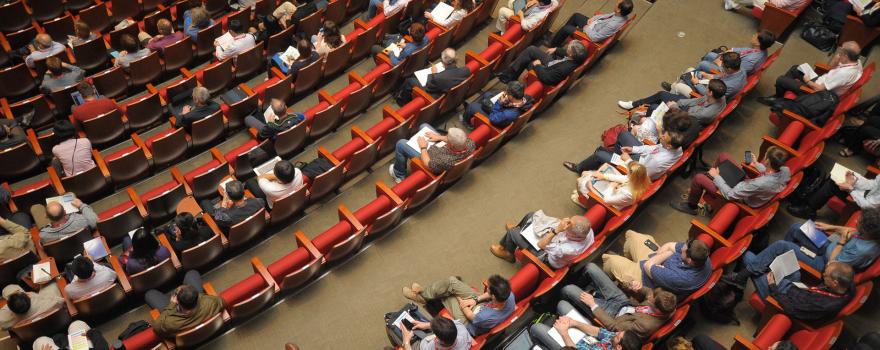Protecting personal data of citizens is one of the most important factors in implementing the once-only principle. In this stakeholder workshop we would like to discuss how secure data exchange and privacy and trust concerns can be addressed when implementing the the once-only principle.
5 Mar 2018
2 Feb 2018
SCOOP4C is heading to Transilvania! On February 27th 2018, SCOOP4C we are having an event Cluj-Napoca, Romanias second biggest city. Join us for an exciting day where we want to discuss with regional experts on the implementation of the once-only principle.
2 Feb 2018
How could once-only in the education sector look like and what are the concerns on once-only like privacy and trust issues? Join us at our workshop in Sofia and discuss these issues with us.
30 Nov 2017
Flanders Information Agency, the IT service provider of the Flanders region in Belgium hosted the Trefdag Informatie Vlaanderen conference for the second time in a row on November 30th 2017 in Ghent. Boris Marinov from SCOOP4C gave an insightful talk on the once-only principle, the SCOOP4C project and raised the question: Is Flanders paving the way for Europe?
28 Nov 2017
The conference on the once-only principle for citizens and businesses is a joint event of the two EU funded projects SCOOP4C and TOOP. Both projects investigate the implementation of the OOP in Europe on a cross-border level. While SCOOP4C is analysing how the OOP can be implemented in public services for citizens, TOOP will pilot OOP implementations for businesses. The projects presented their first results and discussed barriers and enablers of the once-only principle in the health, education, social and business sector.
18 Sep 2017
Join us on September 19th 2017, in Athens, Greece for SCOOP4C's 3rd workshop. We will present first results of the once-only projects and discuss the future of cross-border public service provision in the EU.
Along the stakeholder workshop, we will discuss how to reduce the administrative burden for citizens and how to implement OOP. How can we break down the existing legislative, organisational and technological barrier which hinder citizens, public administrations, and businesses from fully benefitting from OOP implementations, in particular in cross-border public services? These, among many more, will be the questions we will discuss.





